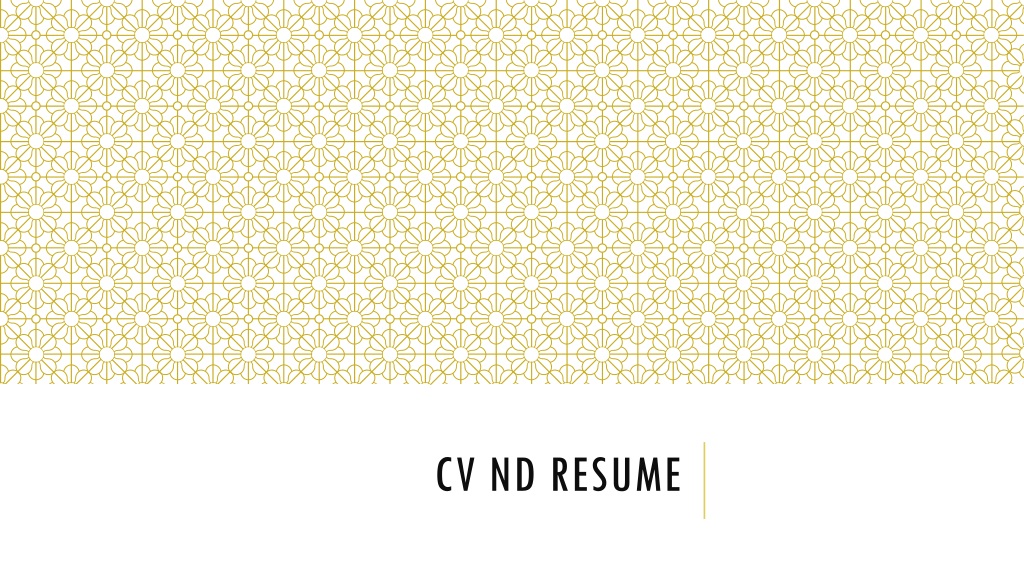

0 likes | 1 Views
Crafting a standout resume involves tailoring your CV or resume to the specific job you're applying for. Emphasize relevant sections such as work experience, achievements, and education. Avoid including private information and focus on key details like contact information, objective, skills, and achievements. Tailor each resume to highlight the most relevant experience for the position you seek. Remember, your resume is your first impression to potential employers.

E N D
CV refers to extensive or even complete summaries of a person's career, qualifications, and education, including publications and other information. A Cv emphasizes the depth of your academic and work experience
The full CV is only used when applying for academic positions in four-year institutions. Do not use a CV when applying to community colleges—use a teacher-focused résumé instead. Tailor your CV to the specific positions to which you are applying and place more relevant sections earlier in the document. – For a position at a teaching-focused liberal arts college, the CV will strongly emphasize teaching. – For a position at a research-intensive university, the CV will accentuate research. Format can vary by field, so also seek disciplinary-specific advice from advisers, professors, and others within your field. There are no length restrictions for CVs
RESUME A resume is a formal document that a job applicant creates to itemize their qualifications for a position. A resume is usually accompanied by a customized cover letter in which the applicant expresses an interest in a specific job or company and draws attention to the most relevant specifics on the resume.
WHAT INFORMATION SHOULD I INCLUDE ON MY RESUME Contact Information Clear objective Education Work Experience Achievements Training and workshop Skills Language Proficiency
WHAT INFORMATION SHOULD I INCLUDE ON MY RESUME Extra-curricular activity References
PERSONAL INFORMATION Name E-mail Contact Phone number Address
PRIVATE INFORMATION Private information is different from personal information and should not be included on your resume . Don’t list your age, race, sex, political preferences, religious affiliations, marital status and so on
OBJECTIVE It explains who you are , what you are offering , and what you are looking for Aim to prove why you are suitable in one short and succinct paragraph.
Work Experience This section should include all of your relevant work experience, listed with the most recent first. Include your job title, the name of the organization, time in post, and your key responsibilities. Achievements This is your chance to show how your previous experience has given you the skills needed to make you a suitable candidate. List all of your relevant skills and achievements (backing them up with examples), and make it clear how you would apply these to the new role.
EDUCATION Your educational experience and achievements should be listed here, along with dates, the type of qualification and/or the grade you achieved – although the specific parts of education that you include in your CV will depend on your individual situation. For example, if you have more educational achievements than work experience, placing an emphasis on this section is a good idea.
SHOULD I CREATE MORE THAN ONE RESUME? This depends on whether you are applying for different types of jobs. For example, if you are applying for an office manager job, you should tailor your resume to outline your leadership and organizational skills. But you might also be interested in applying for a retail position, so creating a second resume that instead highlights any retail experience that you have will put you in a better position to get that job.